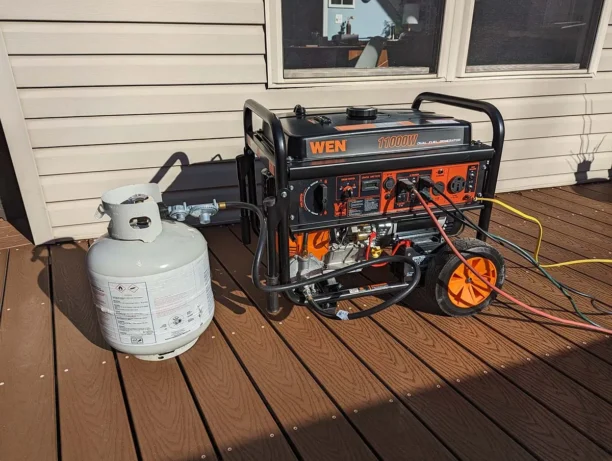Power Out? Customers Are Turning to This Reliable Solution

Power outages are becoming more common across the country. Whether it’s due to storms or grid failures, people are looking for reliable backup power they can trust. That’s where propane generators come in, and the demand for them is growing. If you’re in the propane retail sector, this increasing demand isn’t just a trend – it’s a clear opportunity to grow your company.
You don’t need to be in the generator sales business to benefit from the current demand for these. As more homeowners, businesses, and contractors install propane-powered backup systems, the need for steady, dependable propane delivery grows. These systems do more than simply burn fuel; they help build loyal customers who count on your service when it matters most.
Why Propane Generators?
Propane generators are increasing in popularity because they’re clean-burning, quiet, and don’t degrade over time like gasoline models. They’re safer to store, easier to maintain, and can be tied directly into large tanks that last longer during extended outages. Customers like being ready for an emergency without having to refuel every few hours.
For rural customers, propane generators especially offer peace of mind. These folks often face the most extended power outages and may already use propane for heat, cooking, or water heating. Adding a propane generator makes sense to them; many are willing to invest in long-term protection and convenience.
What This Means for Propane Retailers
As more propane generators are sold, the demand for dependable propane delivery increases. If someone installs a 250-gallon tank to power their home in emergencies, they’ll expect that tank to be full when the lights go out. They’ll likely choose a retailer who keeps their system filled year-round, not just when it’s convenient.
Propane retailers who can monitor tank levels, offer remote metering, or provide automatic delivery gain a competitive edge. Building new delivery routes for generator tanks might be a smooth addition to your current schedule if your team already offers these services. And because these tanks are often smaller than home heating tanks, they need more frequent fills.
Opportunities Beyond Fuel
There’s room to grow your business by becoming a helpful voice in the conversation. You might not sell the generators themselves, but you can partner with local electricians and contractors who do. Suppose you help a homeowner install a propane tank for their generator. In that case, you may also gain their business for their water heating or cooking fuel needs.
Advancing tank sizing, siting, or safety setup also builds trust. When people know they can count on your expertise, they’re more likely to stick with your service – and recommend you to others.
Potential Service Challenges
As demand rises, the need for education also grows. Some customers may not know how much fuel their generator uses during long runs. Others may underestimate how quickly a small tank can dry up in cold weather or after multiple days of use. If your team is prepared to answer questions and offer guidance, you’ll avoid problems down the road and keep your customers happy.
It’s also worth training your techs to check on generator connections when they’re on site. Noticing a leak, a blocked vent, or an unsafe setup can prevent larger issues and reinforce your value as a trusted propane expert and reliable fuel partner.
Fueling the Future of Backup Power
The rise of propane generators isn’t slowing down. As electric grid worries grow and more customers look for backup power options, propane offers a dependable answer. For propane retailers, this is a great chance to expand their customer base, strengthen long-term relationships, and position their business as a key part of the solution.
Why This Matters
This shift opens the door for smart growth. You don’t need to change your whole operation. Rather, focus on aligning it with what customers already want. By supporting propane generator users with reliable service and helpful advice, you place your business at the center of their long-term energy plans. That strategic move will serve to build steady demand, stronger customer loyalty, and more resilient operations.














